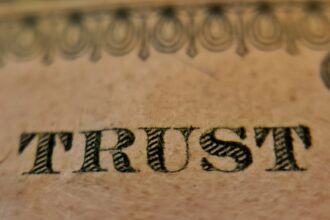Confirmation bias is a cognitive phenomenon that influences how you process information and form beliefs. It refers to the tendency to search for, interpret, and remember information in a way that confirms your pre-existing beliefs or hypotheses. This bias can lead you to overlook or dismiss evidence that contradicts your views, creating a skewed perception of reality.
This bias is not merely a quirk of human psychology; it is deeply rooted in the way your brain functions. You are naturally inclined to seek out information that aligns with your views because it provides a sense of validation and comfort.
This can be particularly evident in areas such as politics, religion, and personal relationships, where beliefs are often strongly held. By favoring information that supports your views, you may inadvertently create echo chambers that limit your understanding of complex issues.
Key Takeaways
- Confirmation bias is the tendency to search for, interpret, favor, and recall information in a way that confirms one’s preexisting beliefs or hypotheses.
- The psychology behind confirmation bias involves cognitive processes such as selective attention, memory, and interpretation, as well as the influence of emotions and social factors.
- Confirmation bias can have a significant impact on decision making, leading to errors in judgment, flawed reasoning, and the perpetuation of false beliefs.
- Examples of confirmation bias in everyday life include seeking out information that supports our opinions, ignoring contradictory evidence, and favoring sources that align with our views.
- Emotions play a crucial role in confirmation bias, as they can influence our perception of information and lead to biased decision making.
The Psychology Behind Confirmation Bias
The psychology behind confirmation bias is multifaceted and involves various cognitive processes. One key aspect is the way your brain processes information. When you encounter new data, your brain tends to prioritize information that aligns with your existing beliefs.
This selective attention can lead to a distorted understanding of reality, as you may only acknowledge facts that support your viewpoint while ignoring those that challenge it. Additionally, cognitive dissonance plays a significant role in confirmation bias. When you hold two conflicting beliefs or when new information contradicts your existing views, it creates discomfort.
To alleviate this discomfort, you may unconsciously reject the conflicting information and cling to what you already believe. This psychological mechanism helps maintain a sense of consistency in your beliefs but can also hinder your ability to adapt and grow intellectually.
The Impact of Confirmation Bias on Decision Making
Confirmation bias can have profound implications for decision-making processes. When you are faced with choices, whether in personal or professional contexts, this bias can lead you to make decisions based on incomplete or skewed information. For instance, if you are considering a significant investment, you might focus solely on data that supports the potential success of that investment while ignoring warning signs or negative analyses.
This selective approach can result in poor decision-making and missed opportunities. Moreover, confirmation bias can create a feedback loop that reinforces flawed decisions. Once you make a choice based on biased information, you may seek out further evidence that justifies your decision, further entrenching yourself in a potentially misguided path.
This cycle can be particularly dangerous in high-stakes situations where the consequences of poor decisions can be significant, such as in healthcare or public policy.
Examples of Confirmation Bias in Everyday Life
| Example | Description |
|---|---|
| Seeking Information | Searching for information that confirms our existing beliefs while ignoring contradictory evidence. |
| Interpreting Information | Interpreting ambiguous evidence in a way that supports our preconceptions. |
| Recalling Information | Remembering events in a way that reinforces our beliefs, while forgetting information that contradicts them. |
| Selective Exposure | Seeking out sources of information that align with our existing beliefs and avoiding those that challenge them. |
You encounter confirmation bias in various aspects of everyday life, often without even realizing it. For example, consider how you engage with social media. When scrolling through your feed, you may find yourself gravitating toward posts and articles that align with your political beliefs or personal interests.
This selective consumption of information can create an echo chamber where dissenting opinions are rarely encountered, reinforcing your existing views and making it difficult to engage with differing perspectives. Another common example occurs in personal relationships. If you believe that a friend is unreliable, you might pay more attention to instances that confirm this belief while overlooking moments when they demonstrate reliability or support.
This selective perception can strain relationships and lead to misunderstandings, as you may fail to recognize the complexity of individuals and their behaviors.
The Role of Emotions in Confirmation Bias
Emotions play a crucial role in the manifestation of confirmation bias. When you feel strongly about a particular belief or opinion, your emotional investment can cloud your judgment and influence how you interpret new information. For instance, if you are passionate about a social issue, you may be more likely to accept evidence that supports your stance while dismissing opposing viewpoints as biased or unfounded.
Furthermore, emotional responses can amplify the effects of confirmation bias. When confronted with information that contradicts your beliefs, feelings of anger or defensiveness may arise, prompting you to reject the evidence outright. This emotional reaction not only reinforces your existing beliefs but also makes it challenging to engage in constructive dialogue with others who hold differing views.
How Confirmation Bias Affects Relationships
In relationships, confirmation bias can create barriers to effective communication and understanding.
For example, if you believe a colleague is untrustworthy, you might misinterpret their intentions or actions as deceitful, even when they are not.
This can lead to unnecessary conflict and tension within the relationship. Moreover, confirmation bias can hinder personal growth and empathy. By focusing solely on evidence that supports your beliefs about others, you may miss opportunities to understand their perspectives and experiences fully.
This lack of understanding can create rifts in relationships and prevent meaningful connections from forming.
Overcoming Confirmation Bias: Strategies for Critical Thinking
Overcoming confirmation bias requires conscious effort and a commitment to critical thinking. One effective strategy is to actively seek out diverse perspectives and engage with information that challenges your beliefs. By exposing yourself to differing viewpoints, you can broaden your understanding and develop a more nuanced perspective on complex issues.
Another approach is to practice self-reflection and mindfulness. Take time to examine your beliefs and consider why you hold them. Ask yourself whether there is evidence that contradicts your views and be open to reevaluating your stance based on new information.
Engaging in discussions with individuals who hold differing opinions can also provide valuable insights and help you recognize potential biases in your thinking.
Confirmation Bias in the Media and Politics
The influence of confirmation bias is particularly pronounced in the realms of media and politics. In today’s digital age, news consumption is often tailored to individual preferences, leading to the creation of filter bubbles where people are exposed primarily to information that aligns with their beliefs. This phenomenon can exacerbate polarization and hinder constructive dialogue between opposing sides.
In politics, confirmation bias can shape public opinion and voting behavior. When individuals consume news from sources that reinforce their political views, they may become more entrenched in their beliefs and less willing to consider alternative perspectives. This dynamic can contribute to divisive political climates and make it challenging for individuals to engage in meaningful discussions about important issues.
Confirmation Bias in the Workplace
In the workplace, confirmation bias can impact decision-making processes and team dynamics. When team members hold strong opinions about a project or strategy, they may selectively focus on data that supports their views while disregarding evidence that suggests alternative approaches could be more effective. This bias can stifle innovation and limit the potential for collaboration among team members.
Additionally, confirmation bias can affect performance evaluations and feedback processes. If a manager has preconceived notions about an employee’s capabilities—whether positive or negative—they may interpret performance data through that lens, leading to biased assessments. This can hinder professional development and create an environment where employees feel undervalued or misrepresented.
The Connection Between Confirmation Bias and Stereotyping
Confirmation bias is closely linked to stereotyping, as both involve the tendency to categorize individuals based on preconceived notions. When you hold stereotypes about certain groups—whether based on race, gender, or other characteristics—you may selectively notice behaviors that confirm those stereotypes while ignoring evidence that contradicts them. This can perpetuate harmful biases and contribute to systemic discrimination.
Moreover, confirmation bias can reinforce stereotypes by creating a feedback loop where individuals only seek out information that aligns with their preconceived notions about a group. This dynamic not only limits understanding but also perpetuates societal divisions and hinders efforts toward inclusivity and equality.
The Future of Understanding Confirmation Bias: Implications for Research and Education
As society continues to grapple with complex issues influenced by confirmation bias, understanding this phenomenon will be crucial for fostering critical thinking skills in education and research settings. Educators have an opportunity to teach students about cognitive biases and encourage them to engage with diverse perspectives critically. In research contexts, recognizing confirmation bias can enhance the integrity of studies by promoting rigorous methodologies that account for potential biases in data interpretation.
By prioritizing objectivity and transparency in research practices, scholars can contribute to a more nuanced understanding of complex issues and help mitigate the effects of confirmation bias on public discourse. In conclusion, confirmation bias is a pervasive cognitive phenomenon that shapes how you perceive information and make decisions across various aspects of life. By recognizing its impact on relationships, decision-making processes, and societal dynamics, you can take proactive steps toward overcoming this bias and fostering a more open-minded approach to understanding the world around you.
Understanding confirmation bias is crucial for developing critical thinking skills and making more objective decisions. A related article that delves into this topic can be found on Unplugged Psych, a platform dedicated to exploring psychological concepts in an accessible manner. The article provides insights into how confirmation bias affects our perception and decision-making processes, offering strategies to mitigate its impact. For a deeper understanding, you can read more about it on their website by visiting this link.
WATCH THIS! The Shocking Truth About Perception Loops
FAQs
What is confirmation bias?
Confirmation bias is the tendency to search for, interpret, favor, and recall information in a way that confirms one’s preexisting beliefs or hypotheses. It is a type of cognitive bias and can lead to cherry-picking evidence and ignoring contradictory information.
How does confirmation bias affect decision making?
Confirmation bias can lead to poor decision making as it can result in individuals not considering all available information and only focusing on evidence that supports their existing beliefs. This can lead to flawed conclusions and missed opportunities for growth and learning.
What are some examples of confirmation bias?
Examples of confirmation bias include seeking out news sources that align with one’s political beliefs, only listening to feedback that confirms one’s own opinions, and interpreting ambiguous information in a way that supports one’s existing views.
How can confirmation bias be mitigated?
To mitigate confirmation bias, individuals can actively seek out diverse perspectives, consider contradictory evidence, and engage in critical thinking and self-reflection. It can also be helpful to seek feedback from others and remain open to changing one’s beliefs in the face of new information.




